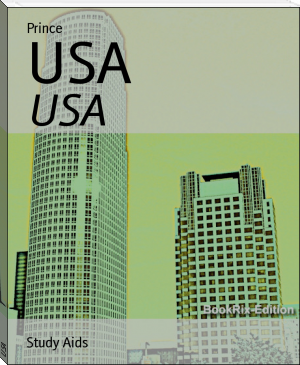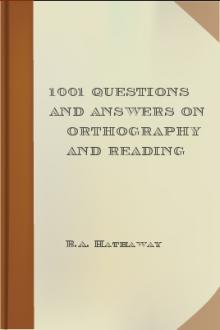Big Dummy's Guide To The Internet - Electronic Frontier Foundation (reading rainbow books .txt) 📗

- Author: Electronic Frontier Foundation
- Performer: 1428042873
Book online «Big Dummy's Guide To The Internet - Electronic Frontier Foundation (reading rainbow books .txt) 📗». Author Electronic Frontier Foundation
Contents:
Instructions for newcomers
Directional signpost
Founders’ statue
To see “Instructions for newcomers”, type
look Instructions for newcomers
and hit enter. You could do the same for “Directional signpost” and
“Founders’ statue.” Then type
SW
and enter to get to Tanstaafl Towers, the city housing complex, where
you have to claim an apartment (you may have to look around; many will
already) be occupied. And now it’s off to explore Holo! One command
you’ll want to keep in mind is “take.” Periodically, you’ll come
across items that, when you take them will confer certain abilities or
powers on you. If you type
help
and enter, you’ll get a list of files you can read to learn more about
the MUD’s commands.
The “say” command lets you talk to other players publicly. For
example,
say Hey, I’m here!
would be broadcast to everybody else in the room with you. If you
want to talk to just one particular person, use “whisper” instead of
“say.”
whisper agora=Hey, I’m here!
would be heard only by agora. Another way to communicate with
somebody regardless of where on the world they are is through your
pager. If you suddenly see yours go off while visiting, chances are
it’s a wizard checking to see if you need any help. To read his
message, type
page
To send him a message, type
page name=message
where name is the wizard’s name (it’ll be in the original message).
Other MUDs and MUCKs may have different commands, but generally
use the same basic idea of letting you navigate through relatively
simple English commands.
When you connect to a MUD, choose your password as carefully as
you would one for your host system; alas, there are MUD crackers who
enjoy trying to break into other people’s MUD accounts. And never,
never use the same password as the one you use on your host system!
MUDs can prove highly addicting. “The jury is still out on
whether MUDding is ‘just a game’ or ‘an extension of real life with
gamelike qualities’,” says Jennifer Smith, an active MUD player who
wrote an FAQ on the subject.
She adds one caution: “You shouldn’t do anything that you
wouldn’t do in real life, even if the world is a fantasy world. The
important thing to remember is that it’s the fantasy world of possibly
hundreds of people, and not just yours in particular. There’s a
human being on the other side of each and every wire! Always remember
that you may meet these other people some day, and they may break
your nose. People who treat others badly gradually build up bad
reputations and eventually receive the NO FUN Stamp of Disapproval.”
11.6 GO, GO, GO (AND CHESS, TOO)!
Fancy a good game of go or chess? You no longer have to head for
the nearest park with a board in hand. The Internet has a couple of
machines that let you engage people from around the world in your
favorite board games. Or, if you prefer, you can watch matches in
progress.
To play go,
telnet hellspark.wharton.upenn.edu 6969
log on as: guest
You’ll find prompts to various online help files to get you started.
For a chess match,
telnet news.panix.com 5000
log on as: guest
You’ll find prompts for online help files on the system, which lets you
choose your skill level.
11.7 THE OTHER SIDE OF THE COIN
All is not fun and games on the Net. Like any community, the Net
has its share of obnoxious characters who seem to exist only to make
your life miserable (you’ve already met some of them in chapter 4).
There are people who seem to spend a bit more time on the Net than many
would find healthy. It also has its criminals. Clifford Stoll writes in
“The Cuckoo’s Egg” how he tracked a team of German hackers who were
breaking into U.S. computers and selling the information they found to
the Soviets. Robert Morris, a Cornell University student, was convicted
of unleashing a “worm” program that effectively disabled several thousand
computers connected to the Internet.
Of more immediate concern to the average Net user are crackers
who seek to find other’s passwords to break into Net systems and people
who infect programs on ftp sites with viruses.
There is a widely available program known as “Crack” that can
decipher user passwords composed of words that might be found in a
dictionary (this is why you shouldn’t use such passwords). Short of
that, there are the annoying types who take a special thrill in trying to
make you miserable. The best advice in dealing with them is to count to
10 and then ignore them — like juveniles everywhere, most of their fun
comes in seeing how upset you can get.
Meanwhile, two Cornell University students pleaded guilty in 1992 to
uploading virus-infected Macintosh programs to ftp sites. If you plan
to try out large amounts of software from ftp sites, it might be wise to
download or buy a good anti-viral program.
But can law enforcement go too far in seeking out the criminals?
The Electronic Frontier Foundation was founded in large part in
response to a series of government raids against an alleged gang of
hackers. The raids resulted in the near bankruptcy of one game
company never alleged to have had anything to do with the hackers,
when the government seized its computers and refused to give them
back. The case against another alleged participant collapsed in court
when his attorney showed the “proprietary” and supposedly hacked
information he printed in an electronic newsletter was actually
available via an 800 number for about $13 — from the phone company
from which that data was taken.
11.8 FYI
You can find discussions about IRC in the alt.irc newsgroup.
“A Discussion on Computer Network Conferencing,” by Darren Reed
(May, 1992), provides a theoretical background on why conferencing
systems such as IRC are a Good Thing. It’s available through ftp at
nic.ddn.mil in the rfc directory as rfc1324.txt.
Every Friday, Scott Goehring posts a new list of MUDs and related
games and their telnet addresses in the newsgroup rec.games.mud.announce.
There are several other mud newsgroups related to specific types of MUDs,
including rec.games.mud.social, rec.games.mud.adventure,
rec.games.mud.tiny, rec.games.mud.diku and rec.games.mud.lp.
For a good overview of the impact on the Internet of the Morris
Worm, read “Virus Highlights Need for Improved Internet Management,” by
the U.S. General Accounting Office (June, 1989). You can get a copy via
ftp from cert.sei.cmu.edu in the pub/virus-l/docs directory. It’s
listed as gao-rpt.
Clifford Stoll describes how the Internet works and how he tracked
a group of KGB-paid German hackers through it, in “The Cuckoo’s Egg:
Tracking a Spy through the Maze of Computer Espionage,” Doubleday
(1989).
Chapter 12: EDUCATION AND THE NET
12.1 THE NET IN THE CLASSROOM
If you’re a teacher, you’ve probably already begun to see the
potential the Net has for use in the class. Usenet, ftp and telnet have
tremendous educational potential, from keeping up with world events to
arranging international science experiments.
Because the Net now reaches so many countries and often stays
online even when the phones go down, you and your students can “tune
in” to first-hand accounts during international conflicts. Look at
your system’s list of Usenet soc.culture groups to see if there is one
about the country or region you’re interested in. Even in peacetime,
these newsgroups can be great places to find people from countries you
might be studying.
The biggest problem may be getting accounts for your students, if
you’re not lucky enough to live within the local calling area of a
Free-Net system. Many colleges and universities, however, are willing
to discuss providing accounts for secondary students at little or no
cost. Several states, including California and Texas, have Internet-
linked networks for teachers and students.
12.2 SOME SPECIFIC RESOURCES FOR STUDENTS AND TEACHERS
In addition, there are a number of resources on the Internet aimed
specifically at elementary and secondary students and teachers. You
can use these to set up science experiments with classes in another
country, learn how to use computers in the classroom or keep up with the
latest advances in teaching everything from physics to physical
education.
Among them:
AskERIC Run by the Educational Resource and Information Center,
AskERIC provides a way for educators, librarians and
others interested in K-12 education to get more
information about virtually everything. The center
maintains an e-mail address (askeric@ericir.syr.edu) for
questions and promises answers within 48 hours. It also
maintains a gopher site that contains digests of
questions and answers, lesson plans in a variety of
fields and other educationally related information. The
gopher address is ericir.syr.edu.
Health-Ed: A mailing list for health educators. Send a request to
health-ed-request@stjhmc.fidonet.org
K12Net: Begun on the Fidonet hobbyist network, K12Net is now also
carried on many Usenet systems and provides a host of
interesting and valuable services. These include
international chat for students, foreign-language
discussions (for example, there are French and German-
only





Comments (0)